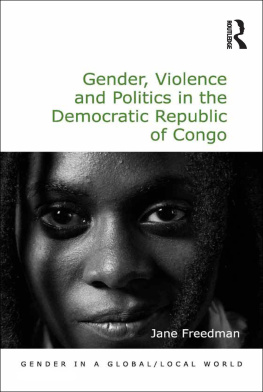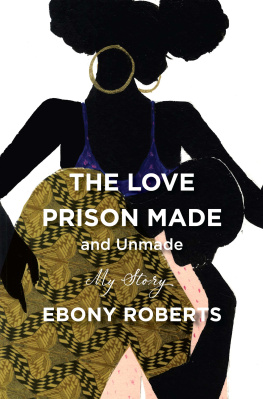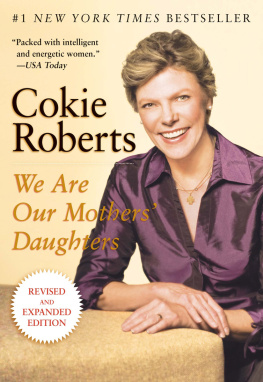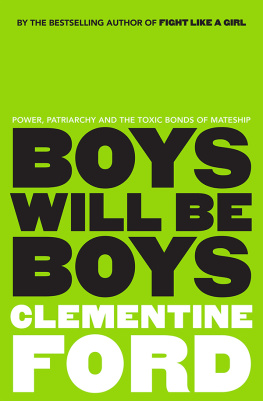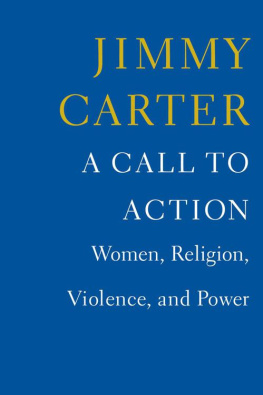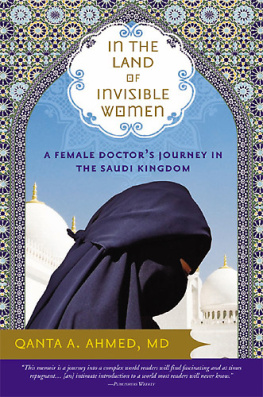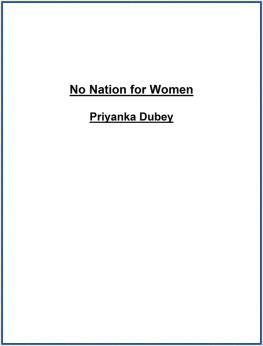

ACKNOWLEDGEMENTS
Huge thanks to everyone involved in making this book, both to those behind the scenes at the BBC and to all the brave women who have fought and continue to fight for justice.
Particular thanks to Ian OReilly, Vivien Morgan, Lyse Doucet, Lynne Franks, Sue MacGregor, Katharine Hamnett, Yasmin Alibhai-Brown, Sam Smethers, Hibo Wardere, Nimco Ali, Matthew Sweet, Luke Mulhall and Tony Jolliffe.
Thank you to the team at Simon & Schuster for their support, especially Abigail Bergstrom, Harriet Dobson and Nicola Crossley, and thank you to Sues agent, Caroline Michel.
From Sues husband Nick Guthrie and her children,
George Morris and Sarah Morris.
The publishers would like to give special thanks to Sues family, for their support in finishing this book.
PREFACE
I was standing on a stage addressing an audience in Trafalgar Square on Valentines Day when the idea of The War on Women came to me. I had been persuaded by the formidable Lynne Franks, PR person and activist extraordinaire, to join her cast of speakers for the One Billion Women Rising rally. The brainchild of Eve Ensler, of Vagina Monologues fame, the annual event aims to draw attention to violence against women worldwide.
Clearly, God is not a feminist. The day before and the day after the rally saw London sparkling in bright winter sunshine. On that day, it was pouring with rain, buckets of it. I looked out on a crowd of a couple of hundred brave, bedraggled women, and a few men, cowering under umbrellas. The absurdity of it all suddenly came to me not the rain but the reason we were all there.
I remembered other rallies I had attended in Trafalgar Square on behalf of Tibetans, Kurds, Palestinians and the Bushmen of the Kalahari. Why is it, I asked myself, that women who make up 51 per cent of the worlds population are still campaigning for fair and humane treatment in the twenty-first century, as if we are just another of the worlds persecuted minorities?
My friends call me the BBCs Hopeless Cause Correspondent. When I look back on thirty years of human rights reporting, the majority of my attempts to draw attention to injustice and suffering from Texas to Tajikistan via Ireland and Pakistan have involved women. Are women doomed to be just another hopeless cause and, if so, why?
I do not pretend that this is a comprehensive look at the problem or that I can provide an answer. The life of one woman reporter is too short for that. This sets out to be an anecdotal account of my personal experience of the problem, based on three decades as a foreign correspondent for ITN and the BBC, of meeting with women who deserve better and with the brave ones who fight back.
Sue Lloyd-Roberts
2015
Publishers note:
Sue Lloyd-Roberts sadly died on 13 October 2015, before she was able to finalise the content of this book. The information contained on these pages was correct at the time of Sues writing; Simon & Schuster UK will be happy to correct any omissions or errors in future editions.
INTRODUCTION
My flat looked like a florists the week of Mums death. I received hundreds of messages of condolence: cards, letters, emails, texts, Facebook messages and, of course, flowers. It was overwhelming but in retrospect wonderful because it was testament to how many people loved and admired my mother.
There was one message that stood out more than any other though; it was from a close family friend, and amidst the terrible sadness it gave me some hope and happiness.
Dear Sarah,
Question: Do we agonize over the raw deal that Sue and her family are, and will suffer in her not leading the fuller life that she truly deserved or do we acknowledge and celebrate an amazing life lived that touched the minds and hearts of many, worldwide?
The answer: Surely, no, we dont agonize and yes we do celebrate. Ive held on to that and thats what Im going to try and do for you, and for her.
This book is a celebration of Mums life. She left this world far too soon but before she died she left us with this amazing collection of her experiences. The War on Women: And the Brave Ones Who Fight Back is an opportunity for us to remember her, its an opportunity for us to recognize her strength and bravery and to acknowledge how she championed and helped so many women who are suffering all over the world.
On top of being one of the best journalists of her generation, she was also brilliant at one of the hardest tasks women face: being a mother. My older brother, George, and I grew up in North London and our house was always full of fascinating people. We would often come home to Mum sitting on the sofa with a Tibetan monk or making a cup of tea for a Pakistani refugee. Our home was a haven for people she met through work and they would often stay the night or spend the weekend with us. I remember Mums delight on seeing a Tibetan monks face light up when we took him to the ballet at the Royal Opera House. Hed never seen anything like it.
There was always a party of some sort going on at our house, it was a hive of activity and new faces, and our home received a lot of attention from our neighbours in Muswell Hill. Mum loved nothing more than throwing dinners, lunches and parties. As teenagers, my brother George and I would often find ourselves sitting next to government ministers, journalists, activists or victims fleeing persecution from one war-torn country or other. There was always food in the fridge usually Mums lasagne and a few bottles of wine and wed sit around a big table in the kitchen and the world would be put to rights.
It was a great childhood. We were pretty much allowed to do whatever we liked except Mum wasnt keen on mindless television, as she called it. Whatever we were watching or reading had to be improving and cerebral. Growing up, George and I werent really allowed to sleep in; weekend mornings would start with her stomping up and down the stairs, singing Oh What a Beautiful Mornin. Never welcome after a hangover but what I wouldnt give to hear her sing that now. Shed always be up first, making waffles with bacon and maple syrup, and whoever happened to emerge from the house and join us at the kitchen table would be welcome for breakfast. She had boundless energy. I remember weekends when friends would wake up to Mum walking around the house, often naked with all the curtains open. Shed say of the neighbours: If theyve got nothing better to do, then let them stare. Not exhibitionism, just absolutely no shame about her body. It was a great body.
Our street in Muswell Hill was a real community, one that was very much built and nurtured by my mother. She famously held a street party to celebrate the Queens Golden Jubilee; she organized the whole thing. There was a line of beautifully decorated trestle tables running down the middle of the closed road and food and drink was plentiful. We danced in the street until late that night. But, as a staunch republican, Mum came to the party dressed in black in mourning for Oliver Cromwell. She had a brilliant sense of humour, great wit and an eye for the ridiculous. She loved poking fun at any kind of pomp.
For my mother there was no problem big or small that couldnt be solved by a long walk. Come rain or shine George and I walked up mountains. We were incredibly lucky in so many ways because Mum took us all over the world with her. By the time I left home, George and I had already met the Dalai Lama in India, stayed in mud huts in tiny villages in Nepal and camped with Bushmen in the Kalahari Desert in Botswana and Aborigines in the Outback in Australia. We graduated from Snowdon in North Wales to Everest Base Camp (from the Tibetan side, of course), we summited Mount Kilimanjaro in Tanzania together and climbed the Singalila Ridge in northern India.
Next page


